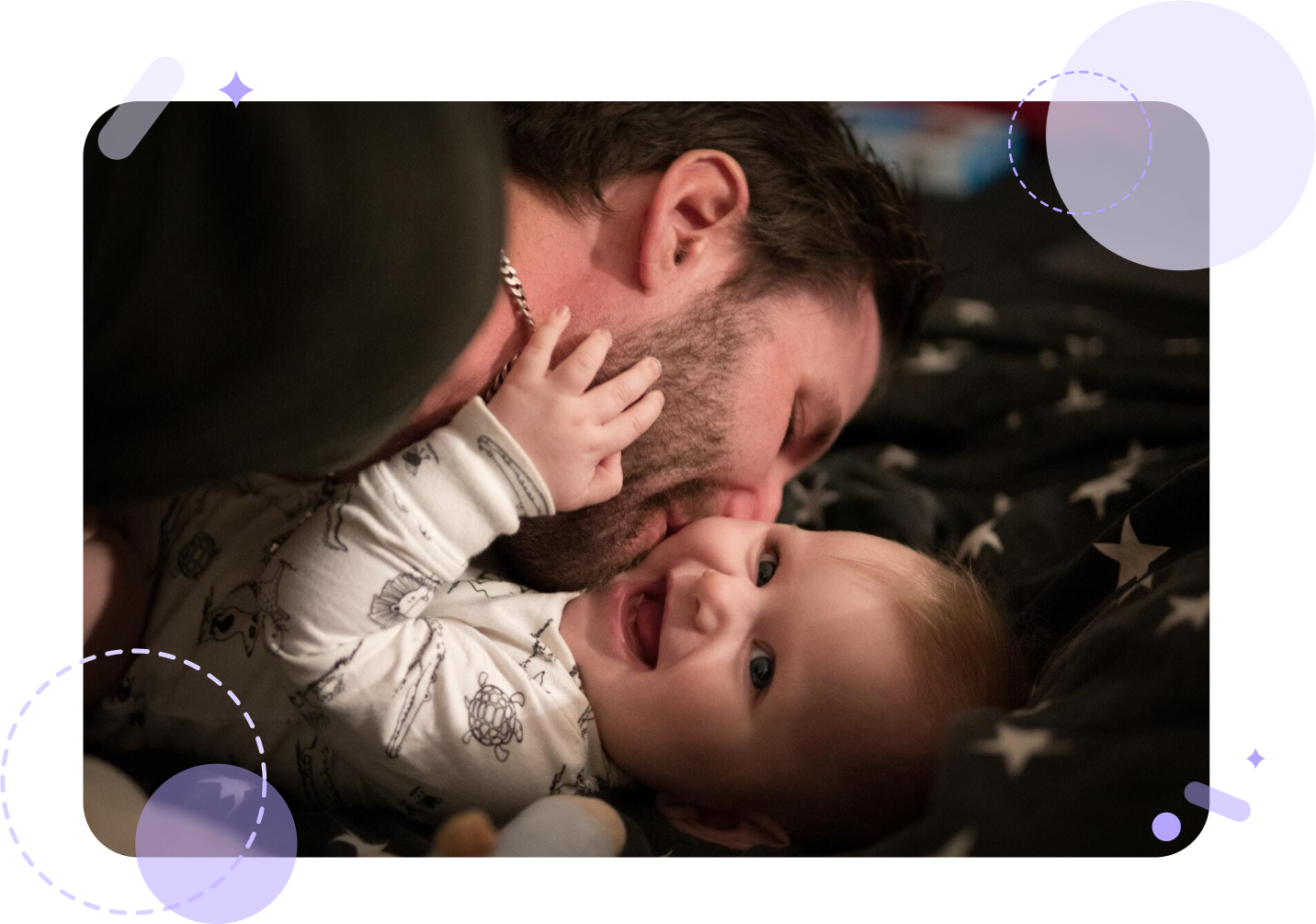
Remember that immediate sense of connection you felt upon holding your baby for the first time? What a beautiful, overwhelming moment! Parents often reflect fondly on those early memories of their little ones – those unspoken promises of love and protection all communicated within a mutually adoring gaze. The eyes are the window to the soul, as they say, and babies convey messages with a glance right from the start.
As your baby develops, their communication skills are quick to follow. Here’s a look at seven fun, simple ways you can support and encourage your baby’s communication development.
1. Talk It Out
When you speak, your baby listens intently to the sound of your voice. As his or her first point of contact with the outside world, your baby relies on you to learn sounds, words, and speech patterns. Parents and caregivers should take every opportunity to talk with their baby, even if it feels silly!
- Describe your actions out loud and explain your daily activities.
- Ask and answer questions as if you were in an actual conversation, allowing gaps in between for your baby to “respond” with a babble or coo.
- Talk to others around your baby to expose them to different voices and words.
- State the names of everyday items, people, actions, and emotions your baby encounters to build their word association.
2. Read Often
It’s never too early to start reading to your baby. Incorporate storytime into your daily routine to develop the habit of communication. Studies show that early, positive reading experiences build lifelong reading lovers. Plus, reading with your baby isn’t just ideal for literacy and language skills – it’s a lovely way to cuddle and bond with your little one. Pro Tip: choose books with bright colors and diverse textures, then read them expressively for an even happier baby.
3. Sing and Rhyme
Speaking of happy babies, there’s nothing quite like watching your child smile and move in response to their favorite songs and nursery rhymes. Babies love high-pitched, sing-song voices, and peculiar noises, so play around with different tones and sounds to tickle your baby’s ear and expose them to a broad and memorable spectrum of auditory stimuli. Baby shark, anyone?
4. Incorporate Body Language
Songs like “Baby Shark” that have simple dance moves to go along with the music and words demonstrate a perfect blend of verbal and non-verbal communication skills. Babies respond well to expressive communication, so try to include movements and facial expressions into your conversations as often as possible to model body language for your child. Think your baby is too young to imitate your actions? Don’t hold back; there’s tremendous value in their learning potential at every age!
5. Play Games
Introduce games into your child’s life that promote direction-following, such as Simon Says. Pretend play activates a child’s imagination through role-playing while providing fun opportunities to practice speech, build conversational skills, develop empathy, and experiment with sound and words.
6. Stay Social
Playdates are a great way to give your baby a chance to test out their growing communication skills. Sure, there may not be any real conversations going on, but you’d be surprised just how much children learn from interacting with their peers. As a starting point, you can prompt development in these settings by describing actions and suggesting responses like, “Look, Harrison! That’s your friend Max. Say hi to Max!”
7. Provide Quiet Time
Learning how to communicate is an overwhelming business, especially for a baby. Humans may be hardwired for connection, but we still require adequate alone time to process our learning. Give your baby plenty of quiet time after social interactions or especially loud, busy periods at home. Allowing space for breaks gives your little one time to rest and recuperate so that the communication skills they’ve learned can truly resonate. Plus, after all that, you probably need a breather too!
It’s not always easy to measure your baby’s communicative progress. Trust the Marble app to track important communication milestones in your baby’s development and keep an eye out on the Marble blog for more tips on encouraging baby talk!
 Back
Back

